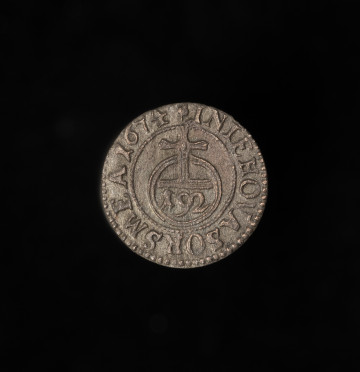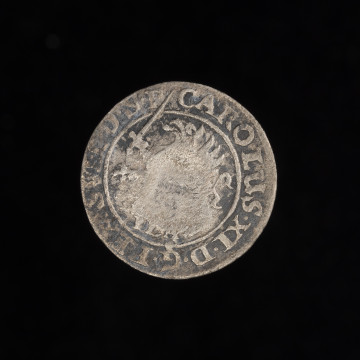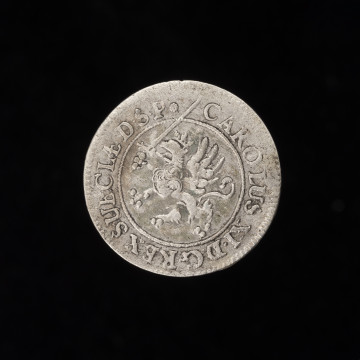
Witten (1/192 of a thaler)
1674
National Museum in Szczecin
Part of the collection: Pomeranian coins
During his short minting career (1612-1618), Philip II, Duke of Pomerania-Stettin modernised the minting industry and minted mainly small coins - groschen and three-pfennige pieces. The mint in Szczecin minted coins adhering to standards, a feat that was due to Philip II and the Münzmeister, Johann Schambach. The grosch was the basic denomination of a medium-sized coin and was intended to stabilise the coin market of the duchy in times of crisis. Edicts issued by the duke forbidding the export of good money abroad were to serve the same purpose. Despite this, the country was flooded with foreign inflationary coinage. The presented grosch, like other pieces from this issue, reflects the ideology of Philip II's reign. A new image of the griffin was introduced, with a sword and a book in its paws. The raised sword had a clear military overtone and reinforced the symbolism of the Duke's mark, indicating the ruler's ability to defend the state. The book on the other hand, most likely the Bible, represented devotion to the Lutheran faith. The apple of dominion with a cross on the reverse symbolised power exercised with God's permission, and the number 24 referred to the value - 1/24 of a thaler. The inscription on the rim: CHRISTO.ET.REI.PVBLICAE (to Christ and the Republic) is a reminder of the life credo of Philip II, who served God and country to the end. The motif of a griffin holding a sword and a book was used very often by Philip II. It appears on the battle pennant and on objects related to the duke's foundation. Genowefa Horoszko
Other names
Groschen
Author / creator
Object type
groschen
Technique
coining
Material
silver
Origin / acquisition method
acquisition
Creation time / dating
Creation / finding place
Owner
Muzeum Narodowe w Szczecinie
Identification number
Location / status

1674
National Museum in Szczecin

1691
National Museum in Szczecin

1672
National Museum in Szczecin
DISCOVER this TOPIC
Castle Museum in Łańcut
DISCOVER this PATH
Educational path